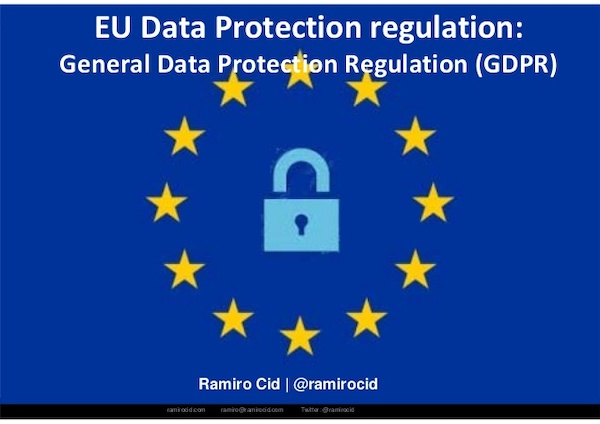Several studies, one after the other, shed light on the awareness of Internet users of the need to preserve their personal data.
- The 5e edition of the Barometer of French confidence in digital technology, set up jointly by Acsel, Caisse des Dépôts and La Poste
- The 2e edition of the CNIL Barometer
- The first edition of the BNP-Paribas Barometer
Commercial use of personal data at the heart of digital trust issues in 2016
According to the 5e edition of the Barometer of French Confidence in the Digital World, set up jointly by Acsel, Caisse des Dépôts and La Poste, this confidence reached a historically low level in October 2016: only 37% of those surveyed said they had confidence in using the Internet.The main cause of this concern is the use that could be made of personal data:
- 45% fear that their personal data will be viewed by someone else.
- 83% are " increasingly wary of the Internet and the growing number of opportunities to misuse my personal data (cloud, connected objects)
- 74% believe that "commercial pressure on the Internet is becoming more and more unbearable (popup, advertising mail)
E-administration remains in 2016 the online service in which Internet users have the most confidence (75%), ahead of online banking (61%), e-commerce (58%), collaborative consumption (55), the cloud (41%) and social networks (28%).
E-administration, e-commerce and collaborative consumption all benefit from an increase in confidence: 8, 12 and 11 points respectively.
The online bank recorded a drop in confidence of 11 points.
The drop in confidence reaches 15 points for social networks. 84% of respondents say they are aware of the collection of their data on social networks for advertising purposes (+26% in 18 months), and 81% say they are bothered by this practice.
In the case of data collection and use in physical sales locations (stores, shopping malls), 59% of Internet users do not want to be tracked and recognized by their smartphone, for example through geolocation, in order to benefit from promotional offers.
On the use of personal data by insurance companies, nearly two-thirds of respondents consider it a threat that companies collect their data to better adjust to their insurance premiums.
Methodology: Online study conducted on the Harris Interactive panel Sample of 1037 people, representative of French Internet users aged 15 and over Average length of the questionnaire: 25 to 30 minutes Field dates: from 19 to 26 September 2016 Change compared to the previous wave: 18 monthsIncreased awareness of risks ...
73% of the French evaluate the current level of risk on the Internet as higher than 10 years ago. Distrust is more pronounced among the under 25s and the over 65s (81%).The first edition of the BNP Paribas and CSA Research Barometer focused more specifically on the perception of risk among Internet users and its translation into their practices:
- opening an e-mail attachment with an unknown address is perceived as "very risky" by 75% of respondents.
- The following practices are considered "risky": communicating personal details (61%), surfing without checking the secure https format of the sites visited (55%), paying online by registering bank details on their favourite merchant sites (50%), using the same passwords and logins for their different accounts (46%).
The way the Internet and cloud computing work is still opaque for a majority of respondents: 78% do not know where a photo posted by them on social networks is stored and 56% do not know where their data is stored on the cloud.
More attentive practices to the protection of personal data
The CNIL conducts regular surveys to better understand the uses and skills related to the protection of personal data. The last one survey was about the precautionary measures taken by Internet users, particularly when services are deemed intrusive (geolocation) or when they concern more intimate data (contact lists, photos).In 2016, 49% of Internet users report using an ad blocker, 83% have ever used a browser setting and 63% have adjusted at least one setting on their smartphone). 82% of social network users say they have adjusted at least one privacy setting on Facebook and 79% do so occasionally or often.
Among the most common precautions are the use of dedicated email addresses (51%) or the use of pseudonyms to register on sites or post comments (83%).
On the other hand, the use of a password manager (13%), reading privacy policies (10%) or taking steps to remove information or public content concerning them (18%) remain largely in the minority.
Methodology: Sample of 2068 interviews, representative of French Internet users aged 15 and over Questionnaire administered on the Internet Survey period: from August 25 to September 7, 2016The strengthening of data protection provisions in France and Europe
The new European Data Protection Regulation (or GDPR, General Data Protection Regulation) was finally adopted by the European Parliament on April 14, 2016. Its provisions will be directly applicable in all 28 European Union member states as of May 25, 2018. In particular, this regulation enshrines the principles of the right of access and portability of people's data.In France, theLaw for a Digital Republic of October 7, 2016 has substantially strengthened the personal data protection regime: affirmation of the principle of individual control over his or her data, strengthening of the CNIL's power to sanction.





